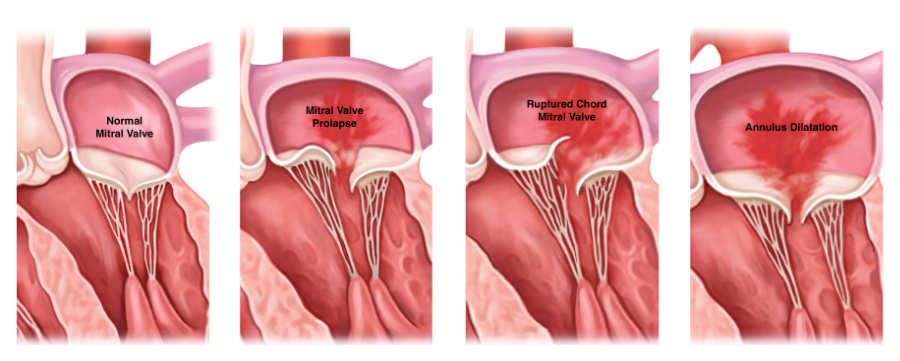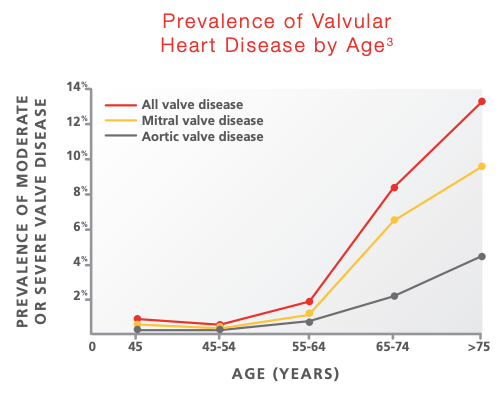Heart Valve Disease
QUICK LINKS
What is Mitral Regurgitation?
Mitral regurgitation occurs when the mitral valve doesn’t close tightly, allowing blood to flow backwards in the heart. This condition can result from mitral valve prolapse (MVP), where the valve flaps become stretched and do not seal properly. It can lead to reduced blood flow and heart strain.

Symptoms of Mitral Regurgitation
While symptoms may not be apparent initially, they often develop as the condition worsens, especially for those in their 40s and 50s. Key symptoms include:
- Chest Pain: Triggered by physical activity, caused by increased heart effort.
- Shortness of Breath: Initially during exercise, but potentially even at rest as the condition progresses.
- Dizziness or Lightheadedness: Due to reduced blood flow.
- Fatigue: Difficulty walking short distances.
- Swelling: Especially in the ankles and feet, due to poor circulation.
- Difficulty Sleeping: Often necessitating an elevated position to breathe comfortably.
- Reduced Activity Levels: Struggling with normal daily activities.
- Feeling Older than Your Age: A general decline in vitality.
Prevalence
Mitral valve disease is common, particularly in older adults. After age 55, the risk increases significantly, with approximately 10% of those over 75 affected. Mitral valve prolapse, a leading cause of mitral regurgitation, may affect as many as 1 in 20 people.

Symptom Tracking
For patients with mild or no symptoms, regular check-ups are crucial. Annual monitoring, often through apps like the Heart Valve Voice app, helps track symptom progression and guides treatment.
Patients receiving annual checkups should use the Heart Valve Voice app to monitor their symptoms. This will provide them and their clinician with a journal documenting how their symptoms are progressing.
Treatment
- Surgical Options: The standard treatment for severe mitral regurgitation remains surgical repair or replacement of the valve. Innovations include the use of the MitraClip, a less invasive procedure that clips the valve to reduce leakage. This option is increasingly popular, especially for patients who might not be candidates for open-heart surgery.
- Minimally Invasive Surgery: Options like robotic-assisted surgery are available at some centers, offering a less invasive alternative with quicker recovery times.
Heart Valve Disease
QUICK LINKS
Patient Story: Geoffrey
In 2013 Geoffrey Pritchard, of North London was admitted to Watford General Hospital after experiencing an episode of atrial fibrillation and was diagnosed with pericarditis. Geoffrey received a pericardiectomy, and through the associated testing they found another issue lurking, mitral regurgitation. Click here to read his story

Read Geoffrey’s story in full…



